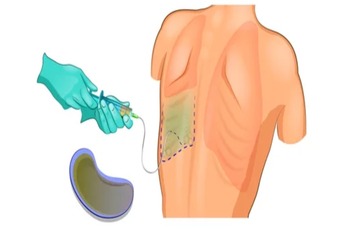The most impressive is collection of share me online college courses

Thoracentesis. The removal of fluid or air from the area around the lung for diagnostic or therapeutic purposes.
INDICATIONS:
- Any pleural effusion of unknown etiology (Effusions with an easily explained cause, such as congestive heart failure, may be observed for response to therapy)
- Large symptomatic effusion
- Stable spontaneous pneumothorax
CONTRAINDICATIONS:
- Chest wall pyoderma or local skin compromise (cellulitis, burn, etc.)
- Herpes zoster on chest wall
- Ruptured diaphragm
PRE- and POST-PROCEDURE PATIENT EDUCATION:
Why is a Thoracentesis Performed?
It is not normal to have fluid or air in the area around your lung. Sometimes the only way to figure out why someone has this fluid is to take a sample. Sometimes fluid or air around the lung can make it hard to breath. Removing it may make you feel better.
Does It Hurt?
Yes, but most people say it is not much worse than having your blood drawn.
What Sort Of Things Can Go Wrong?
The most common problem that occurs from Thoracentesis is for more air to get into the area around the lung, causing the lung to collapse. This happens 5% to 20% of the time. Most often the collapsed lung gets better on its own, but sometimes a tube has to be put in to get the air out. This tube would stay in for several days. You would have to remain in the hospital.
You may feel short of breath immediately after the procedure, but this should get better. Very rarely, the needle goes through an organ, causing bleeding. Sometimes the needle can cause an infection. The goal of Thoracentesis is to gain important information and to make you feel better, but there is always a chance it will make you worse.
What Can I Do To Make Things Go Smoothly?
The most important thing is to lie or sit still. Let the doctor know if you are having any chest pain or shortness of breath. After the procedure, you will probably have to lie quietly and breath oxygen for a while. You can take off the bandage 24 hours after the procedure and wash the area. Inform the physician if you have a hard time breathing, or develop a new fever or chills, or redness at the puncture site.
“Once you see it, you will never forget it.”
“Trust your photogenic memory.”
